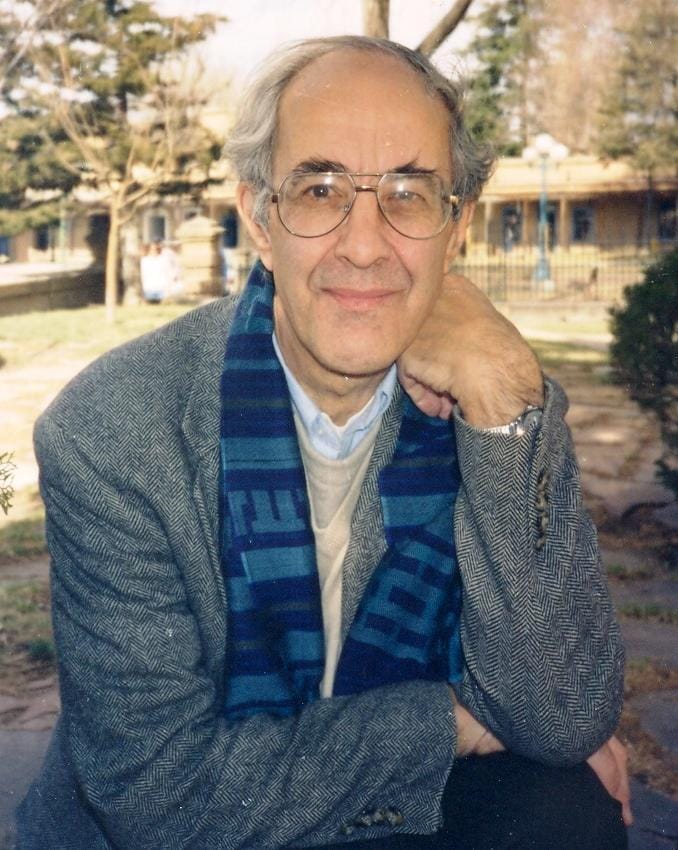- Jubilee Praxis
- Posts
- What Can You Offer?
What Can You Offer?
Making mutual aid practical. Also: action steps for the week
Practicing mutual aid/collective care sounds great in theory, but how do we actually do it in practice when there's not an active and organized group of neighbors caring for one another that we can easily join along with? Are the only options starting a large organized effort or doing nothing?
I think five simple steps can go a long way.
What can I offer?
First, we need to actively brainstorm what we actually have to offer our neighbors. What skills do we have? What do we like to do that might help someone else? Mutual aid can often feel like it is limited to sending money or taking meals, but there are a lot of other ways we can help. Here's one brainstorming list, but there are many other types of useful skills as well. We can also include assets we own that could be borrowed by others for occasional use instead of multiple households purchasing them separately.
For myself, I came up with a list like this:
Finding resources to learn about a topic
Rides to a location
Creating a budget
Finding/selecting providers/vendors
Researching a major purchase
Organizing a move/packing a truck
Fixing something in home or car
Cleaning
Lending canopies for outdoor events
Lending a drill or other tools
Lending a sewing machine
Lending books
Lending games

With whom do I want to practice mutual care?
Next, we need to intentionally consider who we'd be willing to offer our list to on an as-needed basis. Who do we want to deepen our connections with? Who is close enough geographically/socially that we practically can offer our list to them? Who do we trust to grow into mutual care with us? We’re putting it out there that we’re willing to help and hoping they'll be willing to reciprocate with their own skills.
Sometimes, these connections can develop naturally, but intentionally reflecting and listing can help foster their growth and facilitate stretching ourselves to take a step towards greater collective care.
Let them know!
Next, we need to actually talk to the people! How will they know we are willing to help if we don't tell them? Different approaches may work best for different relationships. Some may be more natural, gradual, or spontaneous offers of help, but more direct offering of our list of skills/assets with explicit communication of our desire to grow in caring for one another mutually may be helpful in some cases as well! You could even literally give them your list in print or digitally.
Say “Yes”!
If you’re offering help, it’s important to say “yes” when the asks actually come! Of course we all have places we need to recognize our own limitations and say “no”, but to really practice mutual aid is often inconvenient and we should really attempt to avoid the quick default to “no” if that is our tendency, particularly with those with whom we have shared our offers of skills/assets.
Ask for help!
Remember, it’s “mutual” aid. It’s supposed to go both ways and not be a charity/dependence relationship. That means we need to ask for help. Many of our tasks/obstacles can be worked out independently, but would they be easier with help? If we need to buy something to accomplish what is needed, can we ask ourselves if we know someone from whom we could borrow it instead? Would someone else actually enjoy helping with/participating in what we are doing? I know my own tendency is to do things independently, as that’s often the most convenient/efficient, but great benefits can come to myself and others through inviting others to help, most particularly deeper communal bonds with increasing resilience that we can turn to in greater crisis.
If you’re in my regular community of relationships, I offer my list to you! Let's help one another!
(Image by Glenn Carstens-Peters on Unsplash)
Action Steps - Advocate Against the Cap on Green Cards for Immigrant Children
From Kids in Need of Defense:
An arbitrary annual cap on green cards for immigrant children who have survived parental abuse, abandonment and neglect, and who have already been approved to seek the permanent protection they desperately need, is placing them at risk of deportation, labor exploitation, and other harms. The Protect Vulnerable Immigrant Youth Act would allow these immigrant children, who have already been approved for Special Immigrant Juvenile Status (SIJS), access to the permanent protection that they need.
By eliminating the SIJS green card cap, the Protect Vulnerable Immigrant Youth Act enables children to seek green cards as soon as they are granted SIJS, helping deliver security and permanency to these young survivors that Congress intended and that all children deserve.
Action Steps - Advocate Against WIC Food Site Closures in Chicago
From Community Renewal Society:
The Special Supplemental Nutrition Program for Women, Infants, and Children (WIC) locations in Chicago, including 416 E. 43rd, 1802 E. 71st, 2310 W. Roosevelt, and 1643 W. Cermak, are scheduled to close on July 30.
These closures will limit accessibility for vital resources from families in need or leave dozens of employees without jobs, threatening their livelihood.
As a federally funded assistance program, WIC offers a range of support to parents and caregivers with low and medium incomes, such as wellness counseling, breastfeeding education, healthcare referrals, free diapers, and a WIC EBT (electronic benefit transfer) card to purchase formula, baby food, and nutritious produce like fruits and vegetables.
These grocery centers are critical. Removing WIC clinics from the communities that are already disproportionately impacted strips away access to basic necessities, further harming marginalized neighborhoods and communities of color that have long faced systemic barriers to essential supplies and social services.
Community Renewal Society strongly opposes the shutdown of these critically needed facilities and urges Catholic Charities of the Archdiocese of Chicago, to keep them open or ensure that employees are given timely opportunities to secure alternative employment with dignity and care.
Historical Heroes:
I'll regularly highlight historical heroes, often in the week of their birth or death. Today is the anniversary of Henri Nouwen’s ordination to the priesthood.

Henri Nouwen of the Netherlands (24 January 1932-21 September 1996) was a priest, professor, and writer. Today is the date of his ordination to the priesthood in 1957. As a priest, he initially studied psychology and then provided psychological and pastoral care and taught psychology and spirituality. He grew interested in the United States civil rights movement and other movements for justice, and he visited the southern United States, including the march at Selma. He taught for a decade at Yale before a significant trip in Latin America and a time spent at a L'Arche community where people lived together in mutual care, including people experiencing disabilities. This season redirected his life and he spent his final decade as the pastor for a L'Arche community. Throughout his life, the loneliness of his priestly vows of celibacy and his experience of same-sex attraction was a major struggle and fueled much of his writing and reflection. His works (39 books and many articles) on the Christian life, solitude, identity, ministry, and relationship with God and others have had a significant impact on many.
Reply